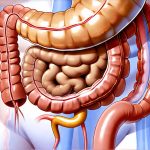Digestive discomfort is an almost universal experience. From occasional bloating and gas to fleeting heartburn or mild constipation, most people encounter some form of digestive upset at various points in their lives. These instances are usually short-lived and resolve on their own, often triggered by dietary choices, stress, or minor changes in routine. While chronic digestive issues require professional medical attention, understanding how to address these common, temporary discomforts can significantly improve your day-to-day wellbeing. It’s important to listen to your body and recognize the difference between a passing issue and something more serious that warrants a doctor’s visit; this article focuses on simple strategies for managing those everyday digestive hiccups.
The goal isn’t to eliminate digestion altogether – it’s a vital process, after all! Rather, it’s about providing gentle support to your system when things feel off-kilter and minimizing discomfort without resorting to drastic measures. Many quick fixes leverage readily available resources like pantry staples or simple lifestyle adjustments. Focusing on these accessible solutions empowers you to proactively manage minor digestive issues and promotes a better understanding of your own body’s signals. This article will explore some effective strategies for alleviating occasional discomfort, emphasizing self-care and mindful approaches rather than complex treatments.
Dietary Adjustments For Quick Relief
Diet plays an enormous role in how our digestive systems function. Often, a simple adjustment to what we eat can make all the difference when experiencing mild discomfort. Identifying trigger foods is key, but even without pinpointing specifics, certain dietary shifts can offer immediate relief. A common approach is to focus on easily digestible foods – those that require less effort from your system to break down. These include things like plain toast, bananas, rice, applesauce (the BRAT diet), and clear broths. Reducing fiber intake temporarily during a bout of diarrhea or bloating can also be helpful, as excessive fiber can sometimes exacerbate symptoms.
Conversely, avoiding certain foods when feeling discomfort is equally important. Highly processed foods, greasy or fried items, spicy dishes, caffeine, alcohol, and carbonated beverages are all known to potentially trigger digestive upset in many individuals. Dairy products can cause problems for those with lactose intolerance, while gluten sensitivity may lead to bloating and gas. It’s not about eliminating these foods entirely, but rather being mindful of your consumption when you’re feeling vulnerable. Paying attention to how different foods affect your body is the most valuable dietary adjustment you can make. If you frequently experience acid spikes, consider pantry staples that can help manage symptoms.
Finally, portion control is crucial. Overeating puts a strain on your digestive system, leading to bloating, heartburn, and discomfort. Eating smaller, more frequent meals throughout the day can be much easier for your body to handle than large portions at infrequent intervals. Remember that mindful eating – savoring each bite and paying attention to fullness cues – also contributes to better digestion. You might even need to adjust recipes to make them more tolerable for your system.
Soothing Beverages & Hydration
Staying adequately hydrated is paramount for healthy digestion. Water helps move food through the digestive tract, prevents constipation, and supports overall gut function. When experiencing diarrhea or vomiting, dehydration can quickly become a concern, so sipping on water throughout the day is vital. However, certain beverages beyond plain water can also offer soothing relief.
- Ginger tea has long been used to alleviate nausea and bloating. Ginger contains compounds that help accelerate gastric emptying, reducing feelings of fullness and discomfort. You can make ginger tea by steeping fresh ginger slices in hot water or using pre-made ginger tea bags.
- Peppermint tea is another popular choice for digestive support. It can help relax the muscles in the gastrointestinal tract, easing bloating and gas. However, peppermint may worsen heartburn in some individuals, so listen to your body.
- Chamomile tea possesses calming properties that can reduce stress and anxiety, which often contribute to digestive issues.
Avoid beverages that are known irritants, such as coffee, alcohol, and sugary drinks. These can exacerbate symptoms and hinder the healing process. Proper hydration isn’t just about drinking when you’re thirsty; it’s about proactively supporting your digestive system. Best hydration strategies are key for those with sensitive systems.
The Power of Probiotics & Prebiotics
The gut microbiome – the community of bacteria residing in our digestive tract – plays a significant role in overall health, including digestion. Probiotics are live microorganisms that can help restore balance to the gut microbiome, while prebiotics are fibers that feed these beneficial bacteria. Incorporating probiotic-rich foods into your diet, such as yogurt (with live and active cultures), kefir, sauerkraut, kimchi, and kombucha, can be a helpful strategy for improving digestive health.
However, it’s important to note that the effects of probiotics can vary depending on the individual and the specific strain of bacteria. For occasional discomfort, adding probiotic-rich foods isn’t necessarily a quick fix, but rather a long-term investment in gut health. Similarly, increasing your intake of prebiotic-rich foods – like bananas, onions, garlic, asparagus, and oats – supports the growth of beneficial bacteria.
Consider that sudden increases in fiber from prebiotics might exacerbate symptoms for some people experiencing acute digestive upset. It’s often better to introduce these gradually. A healthy gut microbiome is a cornerstone of good digestion, but building it takes time and consistency. If you’re struggling with persistent issues, consider rest days for your digestive system to recover.
Gentle Movement & Stress Reduction
Digestion isn’t just about what you eat; it’s also influenced by your physical activity level and stress levels. Gentle movement can stimulate the digestive tract, helping to move food along and relieve bloating. This doesn’t mean intense exercise – a leisurely walk, yoga, or stretching are all excellent options. In fact, strenuous exercise can sometimes exacerbate symptoms, especially during acute discomfort.
Stress is a major contributor to digestive problems. When you’re stressed, your body releases hormones like cortisol that can disrupt normal digestive function. Techniques for stress reduction, such as deep breathing exercises, meditation, mindfulness, or spending time in nature, can help calm the nervous system and improve digestion.
- Deep diaphragmatic breathing (belly breathing) can activate the parasympathetic nervous system, promoting relaxation and reducing tension.
- Mindfulness practices encourage you to focus on the present moment, reducing anxiety about digestive symptoms.
- Regular physical activity releases endorphins, which have mood-boosting effects.
Addressing stress is often overlooked in digestive health, but it’s a crucial component of overall wellbeing. Taking even a few minutes each day to incorporate these practices can make a significant difference. Remember that cold weather can also play a role in digestive issues, so adjust your strategies accordingly.


















